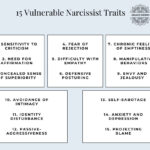How To Let Go Of Resentment For Inner Peace
Have you been hurt or ridiculed and cannot move past it?
Do you often replay the scenario in your head and feel more resentful and distressed?
Have you been imagining bad things happening to that person to relieve your bitterness?
Feeling hurt, embarrassed or shamed are not pleasant feelings. It’s easy to get stuck with these emotions and the painful memories of a hurtful event.
These overwhelming feelings are not healthy for your mental and physical health. Here’s an 8 Step Guide on How To Let Go of Resentment so you can find your inner peace.
8 Step Guide: how to let go of resentment
#1. Acknowledging your resentment
Becoming aware and acknowledging your feelings is the first step towards letting go of resentment.
Denial is a common defense mechanism which a lot of people use. It’s a way of rejecting your own feelings. But how can you let go of resentment if you don’t even acknowledge that it’s there?
#2. Identify the real cause behind your resentment

Okay so someone did something bad to you and hurt you a lot! That’s not cool and it’s not right you can acknowledge that.
But how many times have you replayed the same scenario in your head? Sometimes we get stuck on the same scenario and stuck with the same feeling which might be indicative of something.
For example, let’s say someone ridiculed you in public or at work. Or perhaps your narcissistic toxic partner remarked about how incapable you are at doing something. Or maybe even your own parents commented about how you’re not able to do things properly and left you feeling ashamed.
It’s one thing to get hurt by someone because they were mean. But it’s another thing getting stuck on what they said.
Why did you get triggered? Why are you full of resentment and don’t know how to let go of your grudge?
Do their statements and remarks reflect your inner core beliefs about yourself? Remember that your inner core beliefs do not necessarily reflect reality….. Most often we have self-negative core beliefs about ourselves influence by our upbringing and environment.
#3. Feel your emotions and release your resentment

If you are wondering how to let go of resentment, feeling your emotions is a powerful technique to release them.
Feeling your emotions is not the same thing as replaying the same scenario in your head which made you feel resentful.
When you feel your feelings, it means you are acknowledging them, and letting them surface, so they can leave your body and your psyche.
On the other hand, if you repress or deny those feelings, you are pushing them within yourself and can cause further mental health issues like chronic anxiety and depression.
Repressed emotions and not being able to let go of resentment can also cause body inflammation, disorders of the cardiovascular or immune system, among other health related issues.
Related: Life Force Energy
#4. Own your emotions and take responsibility
So we’ve established the importance of feeling your emotions if you’re learning how to let go of resentment.
Don’t feel ashamed of your own emotions. It’s completely natural to experience these feelings. It’s part of being human. What matters is how you act and what you do with these emotions.
Own your feelings and take responsibility for them. Sometimes it’s easier to blame others for the way you are feeling. Even though you might be resenting someone because they hurt you, staying stuck with feelings of anger and resentment is solely your responsibility.
You have the power over how you feel, so you can choose to let go of your emotions. I know it can be challenging, but holding on to grudges will only make you feel worse.
Just by choosing to let go of grudges does not mean that you are weak or that you tolerate abusive or unjust behavior. Forgiveness and taking responsibility for your own emotions takes great strength and courage! Trust me, by letting go of a grudge you would be doing yourself a favor.
Related: Emotional Intelligence in Relationships
#5. Shifting from a victim mindset
Perceiving yourself as a victim is one of the most powerful things that holds you back from letting go of grudges and feelings of resentment. When you get hurt by someone, you might feel powerless against them or the situation. You perceive yourself as a victim to what happened.
But just because you were a victim in the past, does not mean you need to stay a victim in the present. By perceiving yourself as a victim and get stuck with this narrative, you stay stuck in self-pity.
If you want to learn how to let go of resentment, you need to practice shifting your mindset and taking back your power. Taking your power doesn’t mean that you should seek revenge.
You can take you power back once you let go of what happened and move past it. Repeating affirmations to yourself can help you learn how to let go of resentment. For example:
- “I let go of what happened to me and I won’t let it define me”
- “Despite being hurt and abused, I now know how to protect myself”
- “I let go of resentment and grudges, I am in peace”
- “I am okay and nothing can disturb my peace”
When you become indifferent of what happened, when you are not controlled by it and not allowing it define who you are, that is true power!
#6. Practice mindful meditation

Mindful meditation is a powerful practice that helps you learn how to let go of resentment and anger. When you practice mindful meditation, you start by sitting down in a quiet space and focusing your attention on your breath.
After a few seconds, your mind starts drifting away into thoughts and your job is to catch yourself doing it, and shifting your attention back to your breath. As you practice how to let go of your thoughts, you are teaching yourself how to let go of resentment and other uncomfortable feelings.
Practicing mindful meditation requires patience, commitment and self-discipline. But using meditation to deal with anxiety, negative thoughts and emotions, is a powerful practice with lots of benefits backed up by scientific evidence.
Mindful meditation also helps you detach from your feelings of anger and resentment. This practice creates space between the Self (who you really are), and your thoughts and emotions. So by creating space, you find it easier to detach from your feelings, and you don’t identify yourself as one with your emotions.
That way it will be easier for you to notice that the feeling is there, but you are less carried away by it and find it easier to let go of resentment.
#7. Write down your feelings

A simple task like writing down your feelings can be used as a great tool to let go of anger and resentment. When you write down your feelings, you feel a sense of relief as you put the overwhelming emotions down on a paper.
Instead of replaying the same scenario in your head, which creates more feelings of bitterness and resentment, try writing down the story in your journal.
Write everything that happened, cry about it if you need to, just feel the emotions and let it all out. This exercise will help give you closure as it’s a way of acknowledging what happened, and releasing the grudges and resentment.
#8. Practice compassion for yourself and others
Sometimes we are too hard on ourselves and we beat ourselves down with self-negative talk. Practicing self-compassion will help you be kinder with yourself. It’s okay to make mistakes, what’s important is that we learn from our mistakes and become better versions of ourselves.
Practicing compassion with others will help us become more understanding and empathic towards others. You might be thinking where is she going with this? Why would I want to be compassionate with someone who hurt me?
In reality, the way people treat us and speak to us is a reflection of themselves and who they are. So let’s say someone belittled you at work, this person feels so little that he or she needs to make someone feel small to feel good about himself or herself.
If you have been in an abusive relationship with a narcissistic person, these people have fragile egos and low self-esteem. The way they criticize others might be harsh, but the way they criticize themselves is even harsher. So when someone is nasty with you, they’re even nastier with themselves even though you might not see it.
By being compassionate, you are acknowledging the fact that these people hurt you in the first place because they have issues themselves. Of course it’s not okay to hurt others and you shouldn’t tolerate abuse for whatever reason.
But it does minimize the damage when you keep this in mind. You will be less affected by someone’s hurtful actions. It means that you’re not the problem, but they are. Because any happy and fulfilled, joyful person would not cause harm or pain to others. No person operating from a place of love hurts others!
Why should you learn how to let go of resentment?
Whether you are trying to figure out how to let go of resentment in a relationship, at work, or with your family, this 8 step guide will help you work your way through your emotions and release them.
Holding on to grudges will definitely disrupt your inner peace. Feelings of bitterness and resentment are distressing and can really impact how you perceive life. It’s like you are going through life wearing a pair of glasses with a dark tainted filter which makes everything seem dull and melancholic.
The person that benefits the most from forgiveness is yourself. By letting go of resentment you are freeing yourself from heavy feelings which weigh you down. Help yourself find inner peace and accept that the past is fixed and you cannot change it.
Deactivate the narrated story in your mind and focus on the good things in your life. Focus on the good things in your life and practice gratitude. Learn on how you can raise your vibration so you uplift yourself and free yourself from unpleasant emotions. Keep in mind that suffering can serve a purpose in life if we learn and grow from it!
“As the lotus rises on its stalk unsoiled by the mud and water, so the wise one speaks of peace and is unstained by the opinions of the world.”
Buddha
Related article: Narcissistic Abuse And Spiritual Awakening
FAQ
Follow these 8 steps to let go of resentment and grudges:
1. Acknowledge resentment
2. Identify the real cause
3. Feel your emotions & let go
4. Own your emotions & take responsibility
5. Shifting the victim mindset
6. Meditation
7. Journal your feelings
8. Compassion for self & others
People find it hard to let go of resentment because they do not know how to manage the unpleasant emotion. They hold on to grudges and get stuck replaying the same scenario in their hand. People get stuck in the victim narrative mind-set and self-pity.
Resentment comes from negative emotions like hurt, disappointment, anger etc…It usually doesn’t go away by itself and it can grow stronger if you don’t address it. There are several skills and techniques which you can learn to let go of resentment and anger.
Related articles which you might find helpful:
Buddha Quotes On Karma
Suffering Buddha Quotes
Dalai Lama Quotes On Peace Of Mind
Happiness Is A State Of Mind






